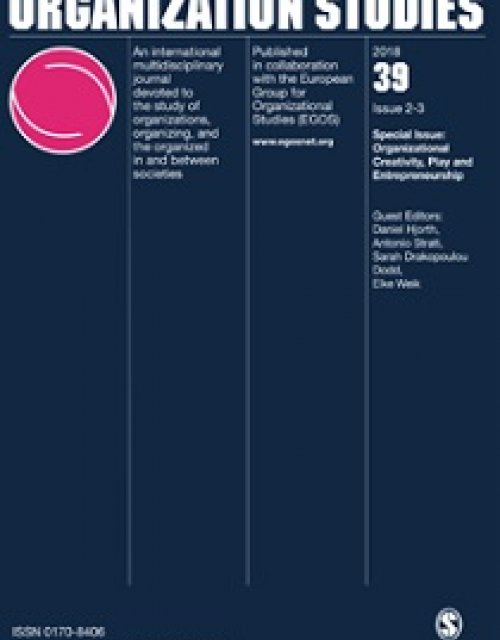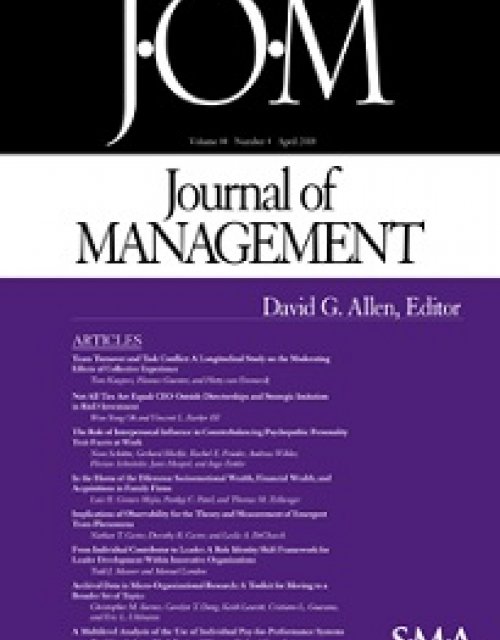Publication records
Subject(s)
Economics, politics and business environment; Finance, accounting and corporate governance
Keyword(s)
Banking crises, cleansing effect, productivity growth, supervisory forbearence
We assess the cleansing effects of the 2008–2009 financial crisis. U.S. regions with higher levels of supervisory forbearance on distressed banks see less restructuring in the real sector: fewer establishments, firms, and jobs are lost when more distressed banks remain in business. In these regions, the banking sector has been less healthy for several years after the crisis. Regions with less forbearance experience higher productivity growth after the crisis with more firm entries, job creation, and employment, wages, patents, and output growth. Forbearance is greater for state-chartered banks and in regions with weaker banking competition and more independent banks.
© 2022 Western Economic Association International.
ISSN (Online)
1465-7295
Subject(s)
Information technology and systems
Keyword(s)
cybersecurity, urban crisis management, digital policy, civil protection, disaster management
Critical infrastructure protection is a joint task of the state and the economy. Nevertheless, there does not yet exist any standardized approach for a common risk management approach. This article proposes such a methodology, leaning on ISO 27000-series and implying three perspectives: the technical, micro perspective, the organizational macro perspective besides the country-wide meta perspective.
Volume
38
Subject(s)
Strategy and general management; Technology, R&D management
Keyword(s)
Open innovation in science, scientific research, openness in science, collaboration in science, inter- and transdisciplinary research
This introduction discusses Open Innovation in Science (OIS) as an emerging stream of research and summarizes the articles published in the Special Issue on this topic.
Volume
29
Journal Pages
131–135
Subject(s)
Human resources management/organizational behavior; Management sciences, decision sciences and quantitative methods; Strategy and general management
Keyword(s)
Sociology, status, cognate concepts
Status constitutes a core research concept across the social sciences. However, its definition is still contested, and questions persist about its consequences. We begin with a flexible, provisional definition: status is a relational asset possessed by social actors insofar as they are highly regarded by highly-regarded others. Using this definition as a backdrop, we develop a fourfold typology based on how status is used as an asset and from where it is derived. The typology allows us to explore the implications of considering status as either a quality-signal or a good, and of viewing status-conferring ties as either deference-based or dominance-based. We then consider the implications of our framework for the generation of novelty. Although status has been connected to many social and economic outcomes, because of competing predictions in the literature—the generation of novelty has been linked to all regions of the status distribution—we sketch intuitions for future research on the status-novelty linkage. We also work toward greater conceptual clarity by comparing and contrasting status with selected related concepts: quality, reputation, and legitimacy. We conclude with considerations of future research, including cautionary remarks regarding network-analytic measurement in light of the definition we propose.
Copyright © 2022 Matthew S. Bothner, Frédéric Godart, Noah Askin and Wonjae Lee
Volume
77
Journal Pages
111–136
ISSN (Online)
978-1-78756-591-3
ISSN (Print)
978-1-78756-592-0
Subject(s)
Human resources management/organizational behavior
Keyword(s)
Negotiation, impasse, getting to no
All day, every day, most of us are bombarded by requests at work. Sometimes these can pile up leaving us feeling overwhelmed. Learning the right way to turn some down can help us stay in our jobs, as happier and more productive employees.
Secondary Title
The Oxford Handbook of Cyber Security
ISBN
9780198800682
Subject(s)
Human resources management/organizational behavior; Strategy and general management
Keyword(s)
Congress, ideology, influence, social capital, status
Prior research assumes that high-status actors have greater organizational influence than lower-status ones, that is, it is easier for the former to get their ideas and initiatives adopted by the organization than it is for the latter. Drawing from the literature on ideology, we posit that the status–influence link is contingent on actors’ ideological position. Specifically, status confers organizational influence to the degree that the focal actor is ideologically mainstream. The more an actor’s ideology deviates from the mainstream the less will her status translate into increased organizational influence. We find support for this hypothesis using data on the work of legislators in the House of Representatives in the United States Congress. By illuminating how and under what conditions status leads to increased influence, this study qualifies and extends current understandings of the role of status in organizations.
With permission of SAGE Publishing
Volume
43
Journal Pages
35–57
Subject(s)
Human resources management/organizational behavior
Keyword(s)
impasses, negotiations, agreements, conflict resolution, bargaining
Although impasses are frequently experienced by negotiators, are featured in newspaper articles, and are reflected in online searches, and can be costly, negotiation scholarship does not appear to consider them seriously as phenomenon worth explaining. A review of negotiation tasks to study impasses reveals that they bias negotiators towards agreement. We systematically organize past findings on impasses and integrate them in the impasse type, cause, and resolution model (ITCR model). Our fundamental assumption is that a positive bargaining zone does not imply symmetric preferences for an agreement. One or both negotiators may prefer an impasse over an agreement despite a positive bargaining zone. We argue that it is beneficial for management research to distinguish between three impasse types: if both negotiators perceive benefit from an impasse, they are wanted; if one negotiator perceives benefits from an impasse, they are forced; and if both do not perceive benefits from the impasse, they are unwanted. We review structural (e.g., bargaining zone, communication channels), interpersonal (e.g., tough tactics, emotions) and intrapersonal (e.g., biases, available information, and framing) factors as the likely antecedents of the three impasse types. We also examine evidence which suggests that wanted impasses can be resolved by changing the negotiation structure for both parties, forced impasses can be resolved through persuasion, and unwanted impasses can be overcome by debiasing both parties. Finally, we review current methodological guidance and provide updated recommendations on how scholars should deal with impasses in both study designs and data analyses.
With permission of SAGE Publishing
Volume
48
Journal Pages
49–76
Subject(s)
Information technology and systems
Keyword(s)
Sovereignty, cyberspace, cyber operations, Tallinn Manual, cyber sovereignty, digital sovereignty, defend forward, persistent engagement
The article critically examines the current discourse on the legal status and substance of “sovereignty” in the context of the application of international law to cyberspace against the backdrop of conflicting political-ideological attitudes. After tracing the origins of the interpretation of “respect for sovereignty” as a primary rule of international law, two approaches to cyberspace are surveyed that challenge the emerging consensus: “cyber imperialism,” embodied by the US and the other Five Eyes members on the one hand, and “cyber Westphalia,” represented by China, Russia, and Iran on the other. Both conceive cyberspace in ways fundamentally irreconcilable with prevailing legal views. A third group of states endorses the “sovereignty-as-rule” understanding but leaves this legal position vulnerable to both authoritarian co-optation and imperialist dismissal. In light of this, the paper offers an alternative interpretation of state practice and international jurisprudence that constructs sovereignty as a principle with derivative primary rules. It is shown that despite not by itself having the status of a rule, the principle of sovereignty allows for the identification of rules that protect the territorial integrity and political independence of states beyond the traditional notions of the prohibition of intervention and the use of force. Following a careful analysis of evidence in existing practice in support of this novel, doctrinally more precise understanding of sovereignty, the policies of “persistent engagement” and “cyber sovereignty” are assessed in light of the argument’s legal implications.
Volume
32
Journal Pages
61–107
ISSN (Online)
2328-9708
ISSN (Print)
1053-6736
Subject(s)
Technology, R&D management
Keyword(s)
Open Innovation in Science, co-production of scientific research, co-developing research proposals
Co-producing scientific research with those who are affected by it is an emerging phenomenon in contemporary science. This article summarizes and reflects on both the process and outcome of a novel experiment to co-develop scientific research proposals in the field of Open Innovation in Science (OIS), wherein scholars engaged in the study of open and collaborative practices collaborated with the “users” of their research, i.e., scientists who apply such practices in their own research.The resulting co-developed research proposals focus on scientific collaboration, open data, and knowledge sharing and are available as an appendix to this article.
Volume
5
Journal Pages
28–49

